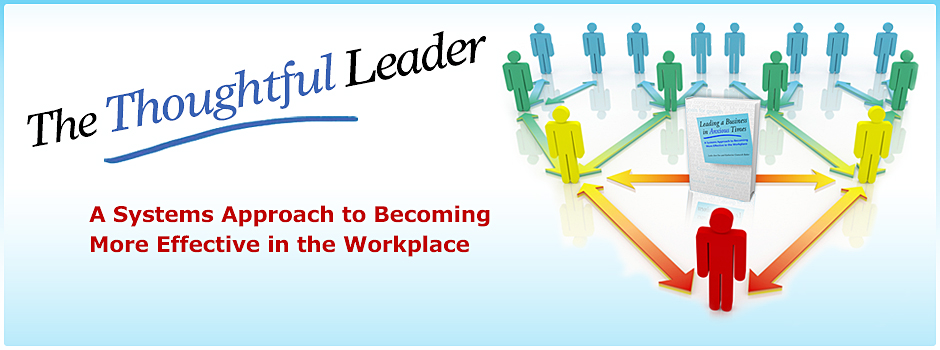There’s new book out that I’d like to recommend to readers of this blog and of Leading a Business in Anxious Times. It’s called Bringing Systems Thinking to Life: Expanding the Horizons for Bowen Family Systems Theory (Routledge, Taylor & Francis Group, 2011), and it is edited by Ona Bregman and Charles White. Four chapters are particularly geared toward business and organizational leaders.
In Chapter 15, “How Bowen Theory Can Be Useful to People in the Workplace: A Conversation Between Kathy Wiseman and Daniel V. Papero,” a business consultant trained in Bowen theory presents several challenging business cases to her colleague, and together they discuss the most effective approach a business consultant can take that is consistently grounded in Bowen theory. This includes working to keep neutral, not taking sides or “triangling” with a client; not overfunctioning or coming up with immediate “expert” solutions to difficult situations that will undermine the client’s own capacity to problem-solve; and maintaining a big picture vision of the way the business is operating.
In Chapter 16, “Bringing Bowen Theory to Family Business,” author Joanne Norton describes her experience growing up in a family business and how it led her to undertake a research project on the most effective non-family and family CEOs in family businesses. In her interviews with successful CEOs, Norton uncovered many useful insights, in addition to the fact that CEOs “need to continually work on defining a self, realizing it is not easy but certainly worth the work.”
In Chapter 17, “Bowen Theory and the Chain Reaction of Bad Leadership and Good Leadership,” author Dennis A. Romig describes how he has “discovered two important concepts as triggers of leadership and organizational performance chain reactions.” They are (a) the role of anxiety and stress in leader functioning, and (b) reciprocal overfunctioning and underfunctioning in leader-subordinate interactions.” He gives examples from his consulting work in which overfunctioning leaders produce a chain reaction of underfunctioning in their employees.
In Chapter 18, “Introducing Bowen Theory to Business Leaders,” John Engels describes a leadership training program he has developed that gives business leaders an opportunity to learn systems theory, explore their own family histories in order to understand their own strengths and vulnerabilities more deeply, learn to define a self, and to think more broadly about the functions of mature leadership. Engels also describes his effort to construct a “less theoretical language for teaching systems theory to business leaders without compromising theoretical soundness.”
All four chapters explore ideas that are congruent with the approach described in Leading a Business in Anxious Times, and will give readers additional understanding of how to apply systems-based leadership to the workplace. I encourage you to order the book and see how useful these four chapters can be for you as you work on improving your leadership.
Katharine Gratwick Baker, PhD
